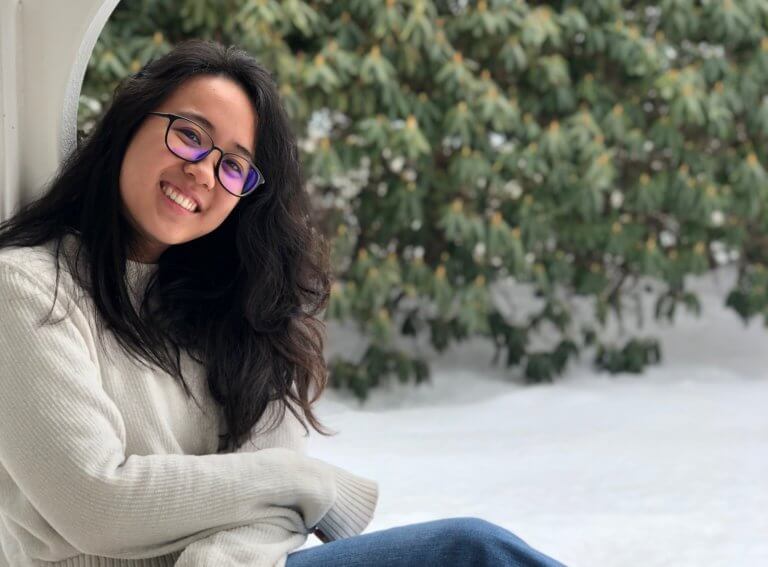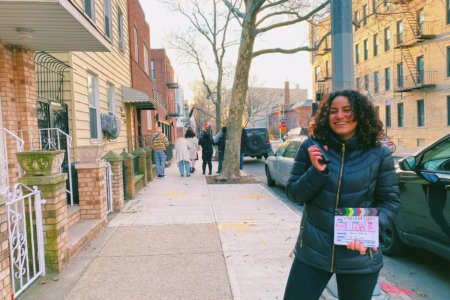
Lilian Li, 21, hails from Penang, an island well-known as Malaysia’s food capital. She’s currently an Advertising major at Boston University, with a minor in English — and a book that has been published.
First, however, the author of “House of Koi” wants to complete her degree. “At first, I wanted to be a Journalism or English major, but I found that Advertising is a good combination of business with writing and creative skills,” Lilian Li tells us. Plus, she has plans to promote more Asian authors — a goal better-served by a major in Advertising than creative writing.

We caught up with Li to ask her about what it’s like to study at BU, her dream to study abroad, and why she wanted to experience the “American Dream”:
Do you think it would have made a difference if you studied Advertising at a local institution?
Yes, I think my life would turn out differently because I was placed in an American international school to prepare for my studies abroad. If I did end up going to a local secondary school, then a local institution, I think my sense of self and ties with Malaysia would be stronger as well as my use of the local languages in Malaysia.
What has been your most memorable class at Boston University — and why?
My most memorable class has been an English Literature and Video Games class called Technology, Gender and Race because it was with my favourite professor. He broadened my mindset on Asian-American literature, and let me brag about playing video games as a homework assignment. On a more serious note, my creative writing class where my professor helped me turn my small short story assignment into my book — House of Koi.
Do you have any fond memories with your teachers at Boston University as an Advertising major? How have they supported your studies thus far?
My Asian-American literature professor became my English advisor and encouraged me to get an English minor. His classes showed me diverse literature that inspired me to write.
My creative writing professor saw the potential in my story when I didn’t have much faith and confidence in myself. When I approached him about writing the book even though the semester had ended, he didn’t hesitate and took time out of his own schedule to help me edit and shape my story.

Life in Boston is fun for this Advertising major. Li knows most of the Malaysian community at Boston University, and regularly catches up with them to reminisce about food from home. Source: Lilian Li
What are the practical learning elements in Advertising? Do you get to apply the theories gained in lecture halls to the real world?
Advertising is a very broad spectrum, so I focus on copywriting as that aligns nicely with my English minor. I’m not sure about the practical bit, but I learnt how the advertising industry works in teamwork and how to be creative. Since I am working in an agency now, I definitely see that the projects I’ve done in school are similar to the real world.
What are your academic goals being an Advertising major?
My academic goals are to get into the Dean’s list and get high honours. I think the skills I gained from the US in general are to be more outgoing and more determined to chase after what I want.
What do you plan to do with this degree after graduating?
My dream has always been to go into the publishing industry to market more diverse literature and continue my passion for writing and creativity. I have no solid plans thus far for after graduate school.
What advice do you have for international students looking to study abroad?
If you get butterfly feelings and feel anxious before a big decision, it means you’re pushing yourself out of your comfort zone, and the more you slowly venture out, the more you will explore and experience. Everything will be okay!
When in the US, what is the one thing you miss from home and how do you substitute it?
I helped start the Malaysian Cultural Association at my university, so I know most of the Malaysian community around Boston. We plan events and basically eat together and reminisce about the food we miss back home.
Congratulations on your book — House of Koi, tell us a bit more about it.

House of Koi, a story about a girl’s life abroad, the challenges she faces, and overcomes. Source: Lilian Li
House of Koi is about a Malaysian girl who grew up in an American international school and transferred to a local private school. This girl lives with her grandmother and has to re-learn Mandarin, she meets new friends and rediscovers old memories she tried to forget.










